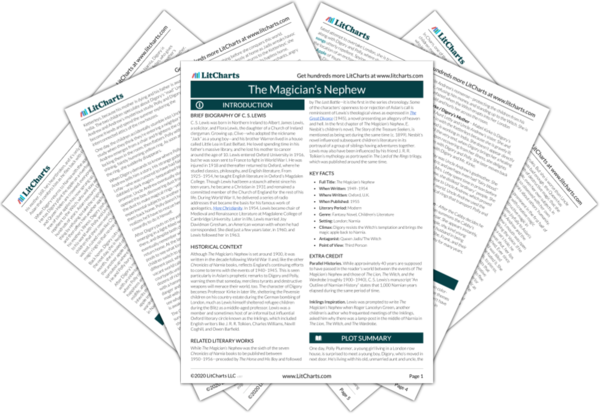LitCharts assigns a color and icon to each theme in The Magician’s Nephew, which you can use to track the themes throughout the work.
Creative Magic vs. Destructive Magic
Human Selfishness vs. Divine Selflessness
Magic, the Ordinary, and Innate Goodness
Creation, Creator, and the Dignity of Life
